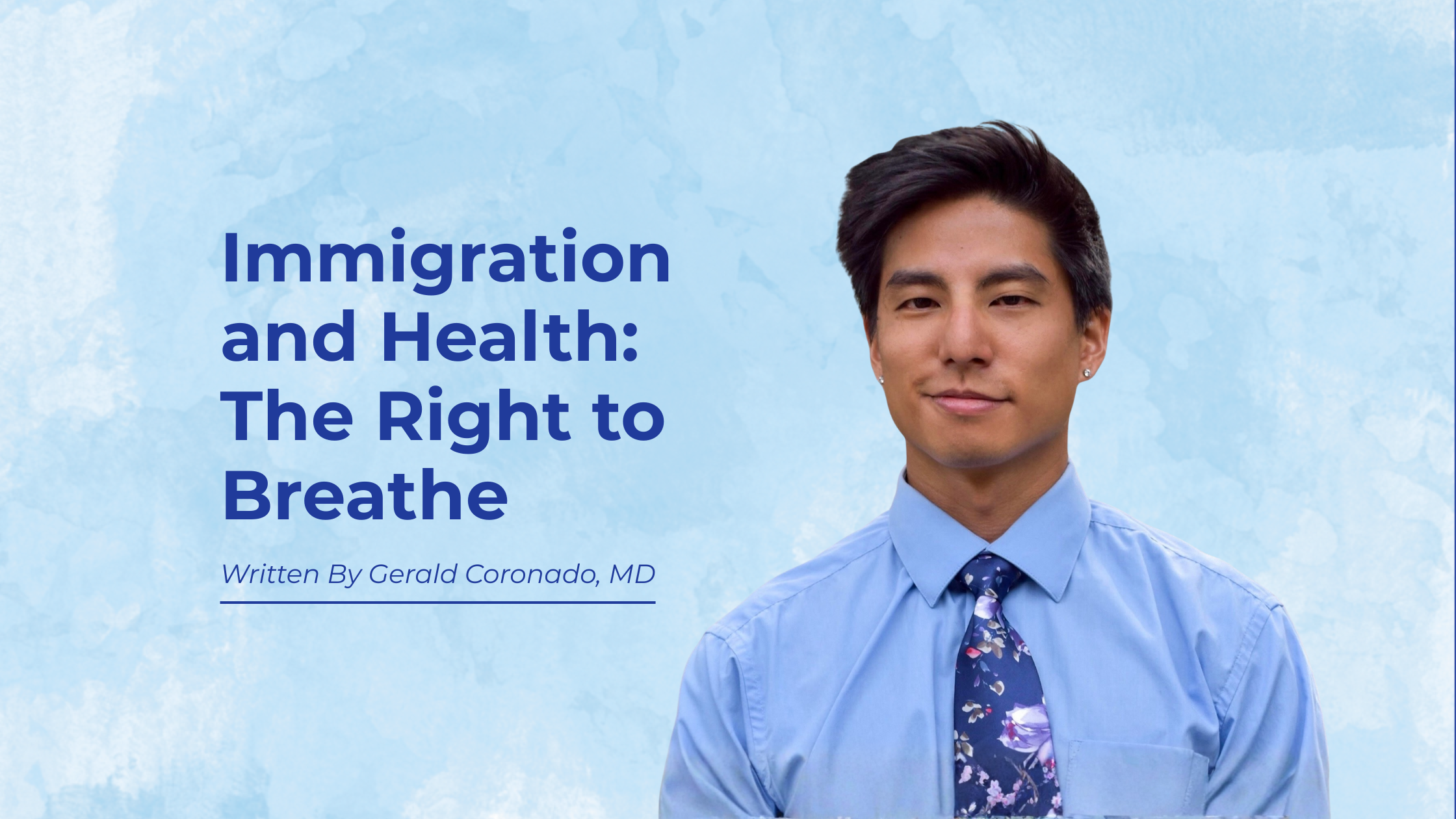
Written By Gerald Coronado, MD
According to the CDC, asthma affects 8.9% of the population (1), myself included. Thankfully, in the U.S., it is a largely manageable condition, with only 1.1 deaths per 100,000 people annually. For comparison, heart disease claims 233 per 100,000 (2). Yet earlier this year, I met someone who became one of these small but tragic statistics.
As a senior family medicine resident physician, I was called to care for Jose Rafael (name changed to protect privacy), a young man close to my age, with no health issues besides asthma. It quickly turned dire when I also read the handoff that he had suffered cardiac arrest in the field following a severe asthma attack and remained unresponsive.
In the next 24 hours, we learned from his local friends and contacts that Jose Rafael had recently arrived from Mexico seeking asylum, leaving behind his wife and children. Due to sociopolitical reasons including fear of ICE, he had been reluctant to seek appropriate medical care, which included obtaining a rescue inhaler, an affordable, accessible, and lifesaving medication that may have halted or even reversed this asthma episode. Instead, we now had to coordinate organ donation and funerary services for a young man pronounced dead too soon.
Working in primary care, I am privileged to serve immigrants and refugees, many of whom have survived unimaginable hardships and often inadequate medical care. This is why I chose Family Medicine - to enable others, both individuals and communities, to have the opportunity for a fulfilling, healthy life.
But that mission is under threat. Policy changes in HR1 (2025) also known as the One Big Beautiful Bill fall heaviest on people like Jose Rafael, immigrants unfamiliar with the already complex American healthcare landscape.
Beyond policies, there are growing physical barriers. Executive Order 14159 allowed ICE to conduct arrests in “sensitive locations” like schools and hospitals. Since its implementation, clinic no-show rates have risen steadily. A 2021 JAMA study found that the 2017 “Muslim Ban” resulted in 101 additional missed appointments per 100,000 people in targeted communities (5).
Together, these policy rollbacks, healthcare cuts, and immigration crackdowns create a maelstrom disrupting communities’ ability and trust in seeking and accessing medical care.
Legislative efforts like the Protecting Sensitive Locations Act, would protect places like health facilities and schools as off-limits for immigration enforcement (8). It currently sits stalled, neither enacted nor brought to the floor.
As a family physician, I want to provide appropriate and necessary medical care for all my patients, regardless of origin, appearance, or ability to pay. In medical school, I swore the Hippocratic Oath: I will remember that I remain a member of society, with special obligations to all my fellow human beings.
When I have an asthma attack, I feel like I’m suffocating. It feels claustrophobia, and I wonder if this might be the end. But I have an inhaler. The attack ends with the administration of my inhaler, and so am I healed. Many will never have that chance.
Jose Rafael didn’t have enough air to say, “I can’t breathe.”
Gerald Coronado, MD is a second-generation immigrant, family medicine PGY3 based at a federally qualified health center in San Diego, whose patient panel includes many immigrants and refugees.